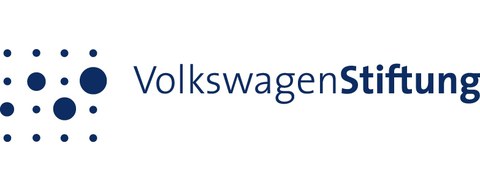Research project: Aggression and Argumentation - Conflict Discourses and their Linguistic Negotiation
Funded by: VolkswagenStiftung
Title: Aggression und Argumentation: Konfliktdiskurse und ihre sprachliche Verhandlung
Initiative: Trilateral partnerships – cooperation between scholars from Ukraine, Russia and Germany
Duration: 3 years (May 2016 - April 2019)
Table of contents
Project leaders
- Dr. Marina Scharlaj, Technische Universität Dresden, Institute of Slavic Studies
- Dr. Olena Taranenko, Ph.D., Donetsk National University, Institute of Journalism
- Prof. Dr. Valerii Efremov, Herzen State Pedagogical University of Russia, St.Petersburg, Faculty of Philology
Project content
Since the protests at Euromajdan, Ukraine has been a venue for contrasting values and legitimation discourses. The conflicting parties use both rational argumentation and aggressive rhetoric, depending on the intentions of their communication. Based on the current conflict discourse concerning Ukraine, the project analyses the lines and strategies of argumentation that are developed in different national discourses on the one hand, and in different communication formats on the other. On the basis of political speeches and legal texts, media formats such as television, radio, print media and communication in social networks, the project discusses the attitudes, established values, historical reminiscences, and traditional images that are typical of the respective national discourses in order to understand the dimensions of the linguistic negotiation of aggression and argumentation, of cooperation and conflict in general.
The project examines in general how conflicts emerge, and how they are expressed and resolved. It will focus in particular on the following questions: What forms do conflicts take in different areas of communication? Which differences can be identified in Ukraine and Russia in recent years with regard to national, ethnic, media and discursive aspects? How are the differences resolved? That is, which positive forms of conflict resolution can be observed in parallel? The analysis understands itself as a contribution to the development of conflict linguistics and builds primarily on pragma linguistic questions and methods of cultural linguistics. The project complements the existing conflict research in that it considers cooperative communication of conflict management (e.g. controversial argumentation) and thus does not restrict the conflict to aggressive communicative action.
In addition to the theoretical modelling of conflict linguistics, the research project aims to translate the findings into an open teaching-learning platform for knowledge transfer. Within the framework of the trilateral project, new concepts for international workshops in the field of conflict management will be developed and tested. In the spirit of practical sustainability, the results of research and practice will be made available not only for university education, but also for trainers of teaching staff and media representatives.
Objective and motivation
The envisaged project has two objectives: At the interface between research and practice, it will serve theory development and develop new cultural-linguistic approaches to the phenomenon of conflict. On the other hand, the project will contribute to the direct transfer of knowledge. In particular, this involves the transfer of knowledge from Germany to Russia and the Ukraine. With regard to methodological questions and intercultural perspectives of knowledge transfer as well as taking into account the more recent (in Eastern Europe only weakly established) concepts of knowledge transfer, the project aims to create a starting platform on which the conflict problem can be academically discussed, illustrated with concrete examples, and tested in practice in trilateral cooperation with Russian and Ukrainian early career researchers, with language experts, media representatives, and students. The focus is on conflict dynamics; it involves the linguistic initiation of conflicts, their implementation in various discursive formats as well as examples of conflict resolution.
Expected results
The project expects answers to the questions How are conflicts initiated, how are they expressed and how are they resolved? These questions will be addressed taking into account the current conflict situation in Eastern Europe. The intensive cooperation and the academic exchange with colleagues from Russia and the Ukraine are intended to resume the cross-border communication and to strengthen the dialogue. The following results are to be achieved in the context of the envisaged project:
-
compilation of representative corpora for the analysis of the conflict
-
theoretical modelling of conflict linguistics
-
academic publications in the form of individual articles in the journal Zeitschrift für
Slawistik (peer reviewed) as well as in a joint monograph
-
new concepts for international workshops in the field of conflict management, transfer of knowledge in open teaching-learning platforms
-
handout on conflict and conflict resolution for students, early career researchers, trainers of teaching staff
-
synergy effects due to integrated cooperation between early career researchers, established researchers, and media representatives
-
establishment of an international cooperation network which will continue beyond the project and will be further expanded.

